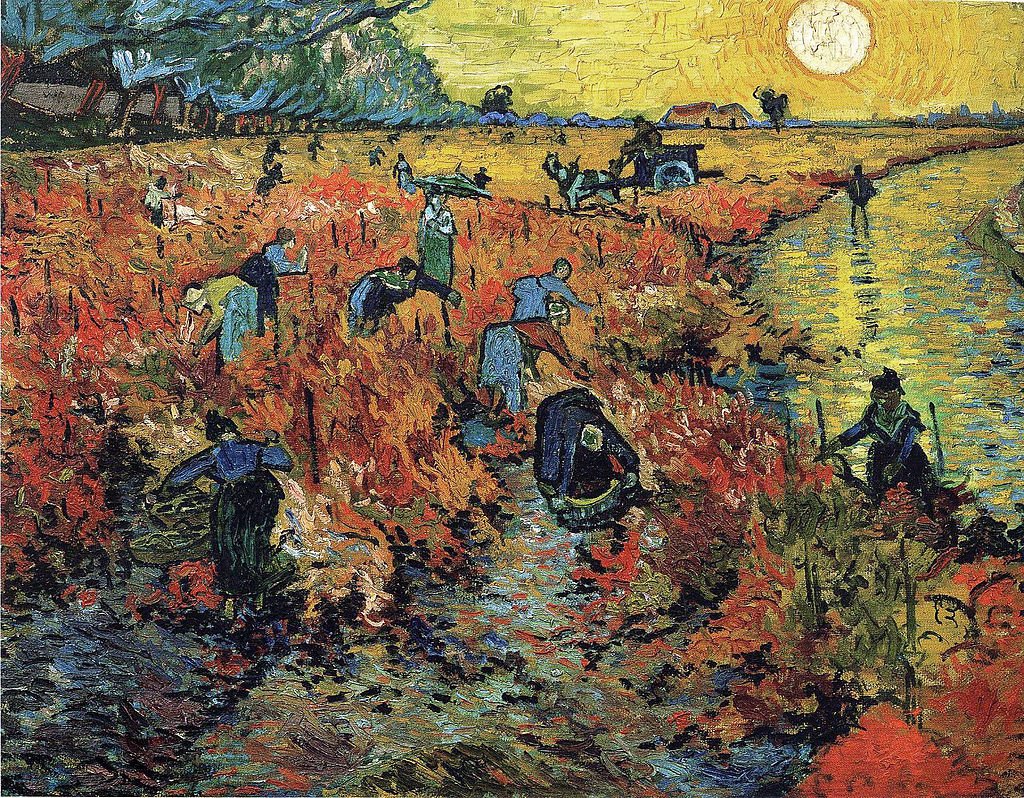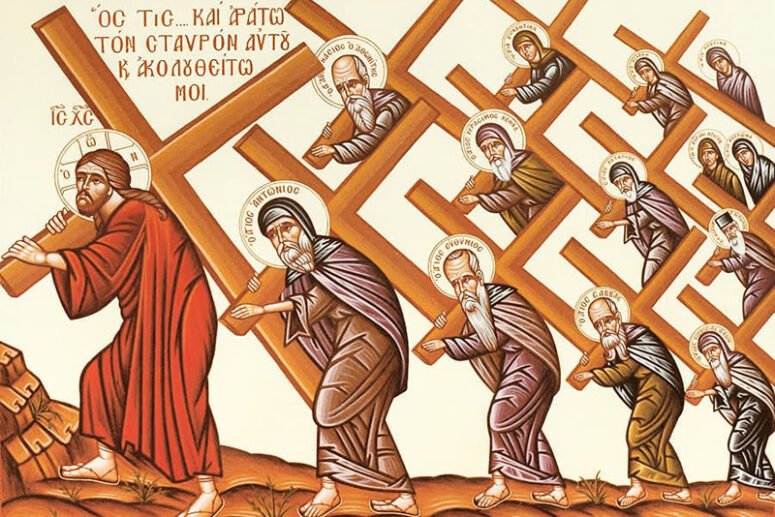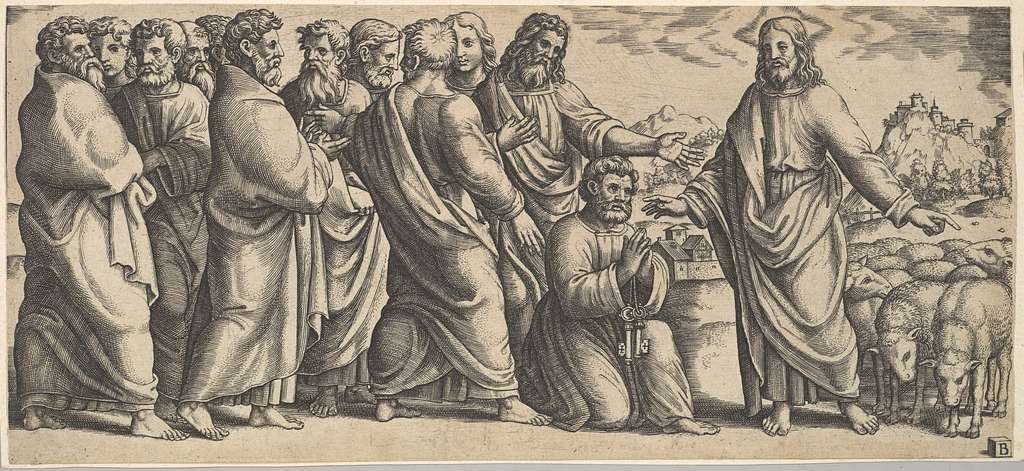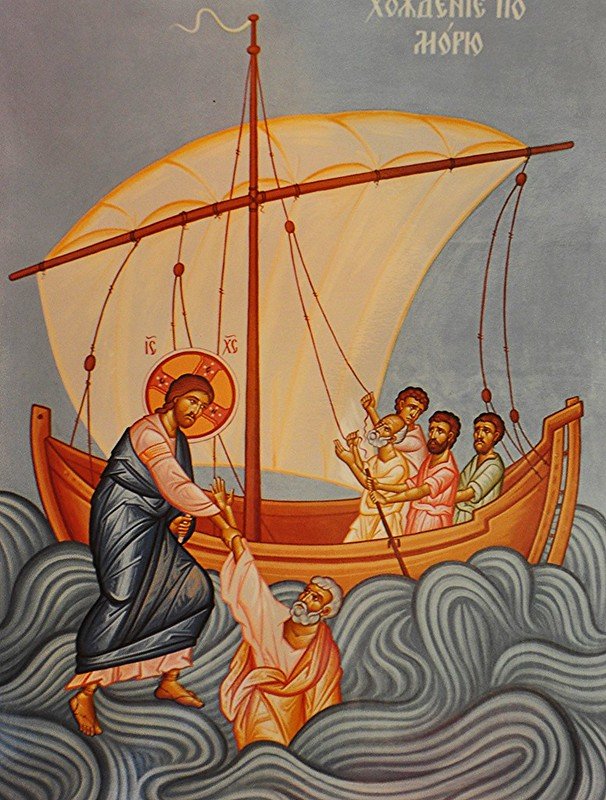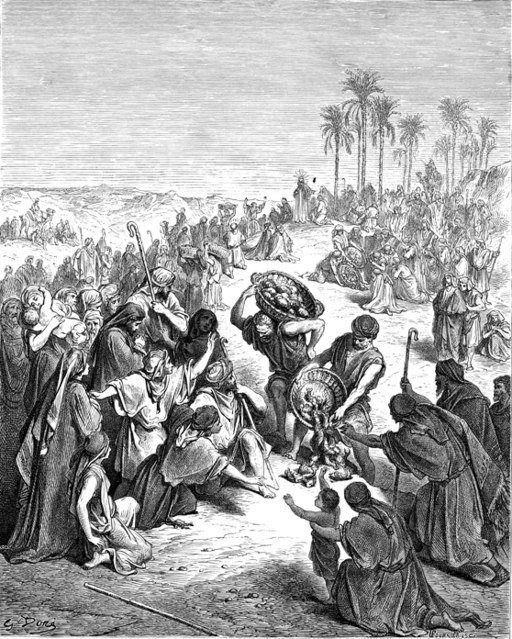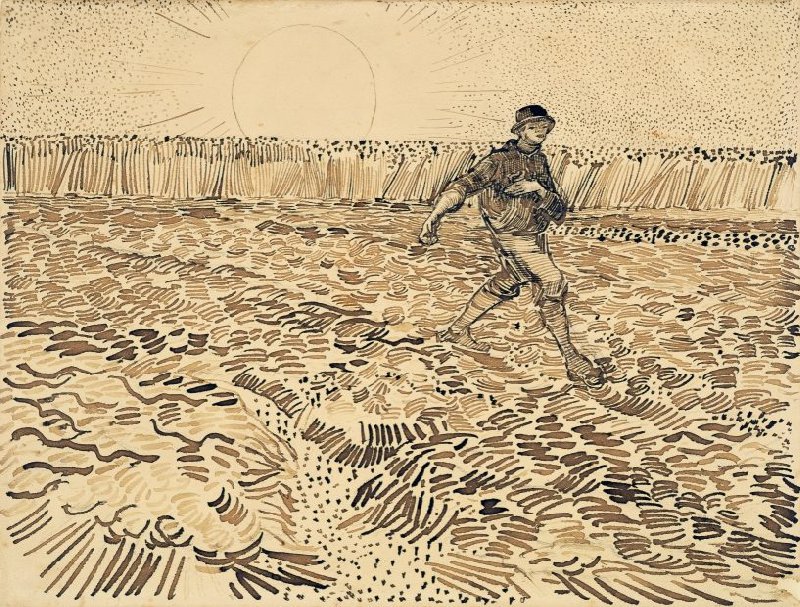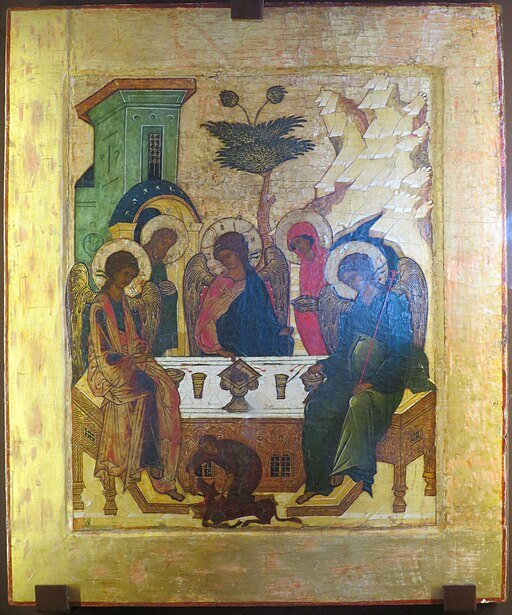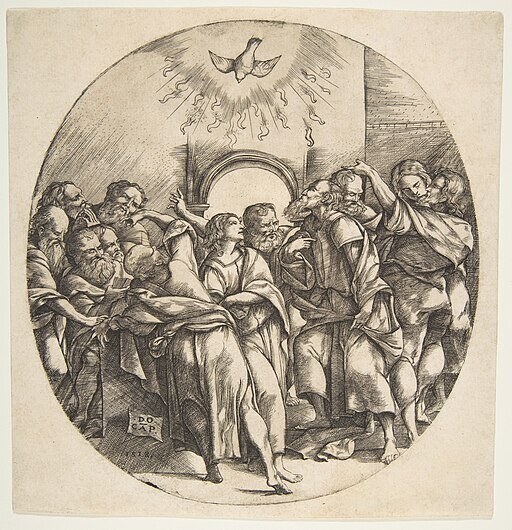As we hear the Parable of the Wicked Tenants, our hearts should be drawn to the conclusion in which the wicked are cast out for those who will provide the fruit to the master. We are called to good works by the power of the Holy Spirit, works that the Father has prepared beforehand for us. How do we respond to these called out of us works? Do we resist? Or do we receive the work of the Spirit to enable us to fulfill God’s callings upon us?
Image: The Red Vineyard or Red Vineyard at Arles, Vincent van Gogh, Public domain, via Wikimedia Commons. Image location: https://commons.wikimedia.org/wiki/File:Red_vineyards.jpg

